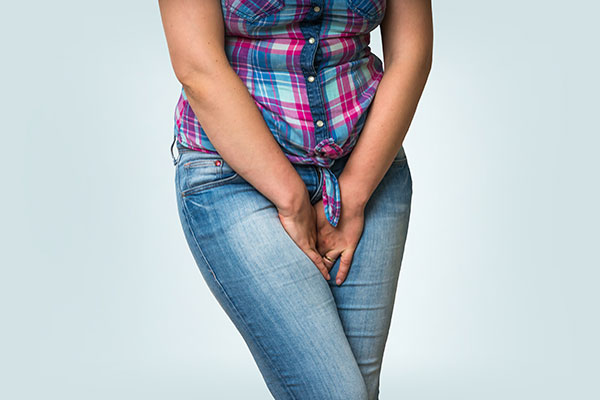Bladder Control: When Kegels Aren’t Enough

For many women experiencing bladder control issues, Kegel exercises are often the first recommended solution. Kegels can strengthen the pelvic floor muscles and provide relief from mild cases of urinary incontinence. However, for some women, Kegels alone aren’t enough to resolve their bladder control problems. If you’ve been faithfully doing your Kegels but still struggle with urinary incontinence, there are other effective treatment options available.
At North Pointe OB/GYN in Cumming, we specialize in helping women regain control of their bladder and improve their quality of life. In this blog, we’ll explore the reasons Kegels might not be working for you and discuss advanced treatment options that can help.
Why Kegels Alone May Not Be Enough
Kegel exercises involve contracting and relaxing the pelvic floor muscles, which support the bladder, uterus, and bowels. While Kegels can be effective in strengthening these muscles, there are several reasons why they may not provide complete relief from urinary incontinence:
- Severity of Incontinence: Kegels are most effective for mild stress incontinence, where small amounts of urine leak during activities like coughing, sneezing, or exercising. However, for women with moderate to severe incontinence, more advanced treatments may be necessary.
- Underlying Conditions: Conditions such as pelvic organ prolapse, nerve damage, or hormonal changes can weaken the pelvic floor muscles beyond what Kegels can address. In these cases, additional interventions may be needed to restore bladder control.
- Improper Technique: Many women don’t realize they’re doing Kegel exercises incorrectly, which can limit their effectiveness. Working with a specialist to ensure proper technique can sometimes improve results, but other times, alternative treatments are required.
Understanding Urinary Incontinence
Urinary incontinence affects millions of women in the U.S., with an estimated one in three women experiencing bladder control issues at some point in their lives, according to the American Urological Association. The two most common types of urinary incontinence are:
- Stress Incontinence: This occurs when pressure on the bladder from physical activities like lifting, coughing, or laughing leads to urine leakage.
- Urge Incontinence: Also known as overactive bladder, urge incontinence involves a sudden, intense urge to urinate, followed by involuntary leakage.
Understanding which type of incontinence you’re experiencing is essential for finding the right treatment. At North Pointe OB/GYN, our experienced team will work with you to diagnose your condition and recommend the best treatment options based on your needs.
Treatment Options When Kegels Aren’t Enough
If Kegels aren’t helping, don’t worry—there are several advanced treatment options available for women dealing with bladder control issues. Here are a few of the most effective solutions:
1. Medications
For women with urge incontinence, medications can help relax the bladder muscles and reduce the frequency of leaks. Common medications include anticholinergics and beta-3 adrenergic agonists, both of which work to control overactive bladder symptoms.
According to a study published in the Journal of Urology, 75% of women who took medications for urge incontinence experienced a significant reduction in symptoms within a few weeks.
2. Bladder Training
Bladder training involves learning techniques to improve bladder control by gradually increasing the amount of time between bathroom visits. This method is particularly useful for women with urge incontinence, as it helps train the bladder to hold more urine and reduce the urgency to urinate.
Bladder training, often combined with pelvic floor exercises, has been shown to reduce urinary frequency by up to 50%, according to a study in Current Bladder Dysfunction Reports.
3. Pessary Devices
A pessary is a small, removable device inserted into the vagina to support the bladder and urethra. It is commonly used for women with stress incontinence or pelvic organ prolapse, both of which can cause bladder leakage. Pessaries help prevent urine leakage by providing additional support to weakened pelvic muscles.
This non-surgical option can offer significant relief for women who want to avoid more invasive treatments.
4. Botox Injections
Botox isn’t just for wrinkles—it can also be used to treat overactive bladder. When injected into the bladder muscle, Botox can help relax the muscle and prevent the frequent, urgent contractions that lead to urine leakage. The effects of Botox injections typically last between 6 to 12 months, making it a convenient option for long-term management of urge incontinence.
5. Surgical Options
For women with more severe urinary incontinence or when non-surgical treatments haven’t worked, surgery may be recommended. Some common surgical treatments include:
- Sling Procedures: A mesh sling is placed under the urethra to provide additional support and reduce urine leakage during physical activity.
- Bladder Neck Suspension: This procedure involves lifting and securing the bladder neck to prevent stress incontinence.
Surgical procedures are highly effective, with success rates of 80-90% in most cases, according to the American Urological Association.
Don’t Suffer in Silence—Seek Professional Help
If Kegels aren’t providing the results you need, it’s time to explore more effective treatment options for bladder control. At North Pointe OB/GYN, our experienced team is committed to helping women regain their confidence and improve their quality of life. Whether you’re dealing with stress incontinence, urge incontinence, or a combination of both, we can provide a personalized treatment plan tailored to your needs.
Contact North Pointe OB/GYN in Cumming today to schedule a consultation and take the first step toward better bladder control.


